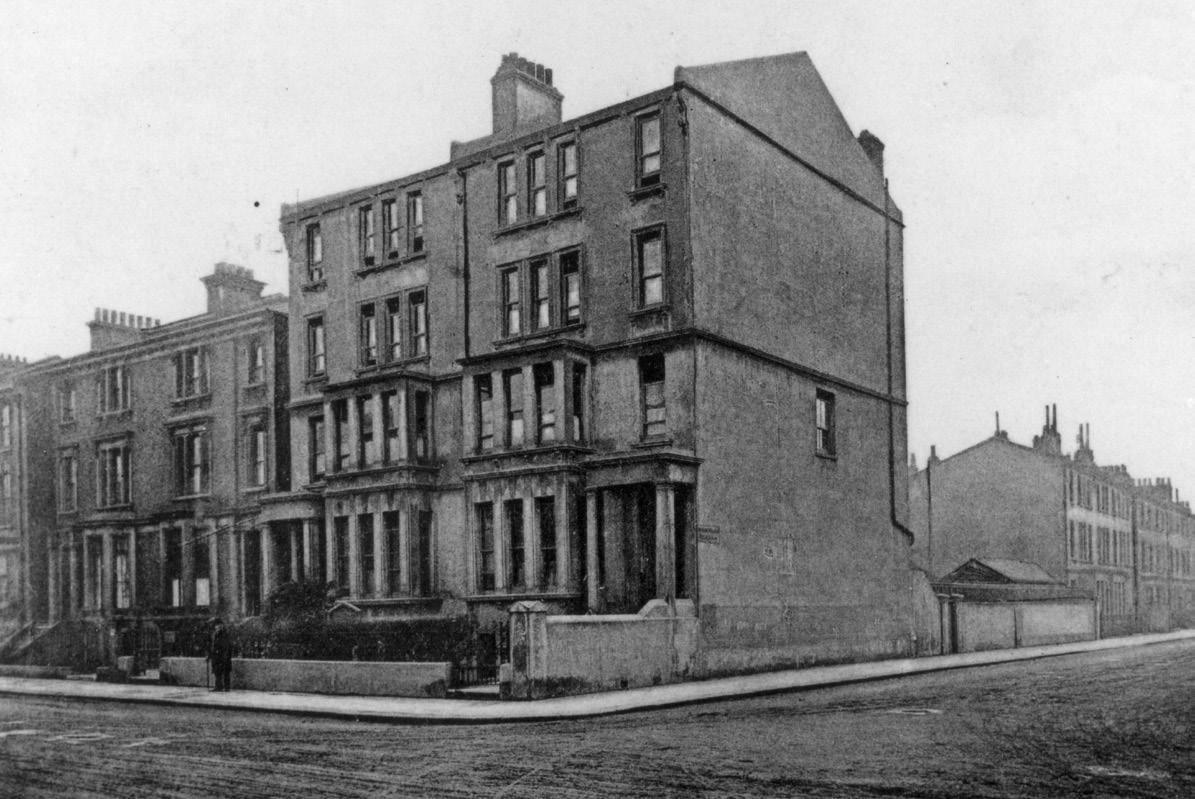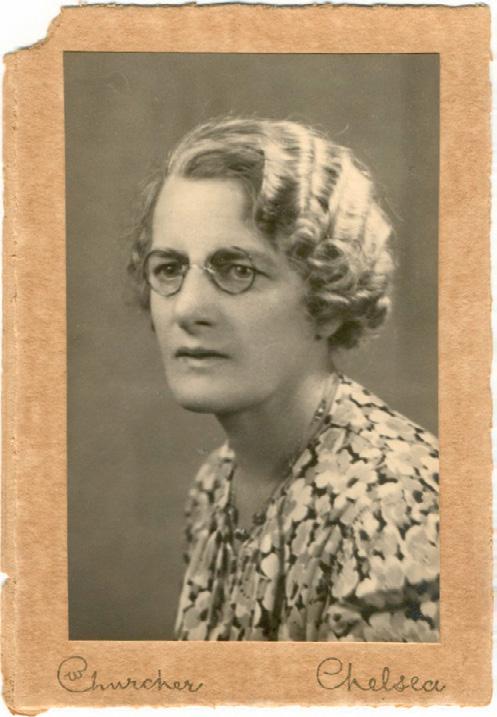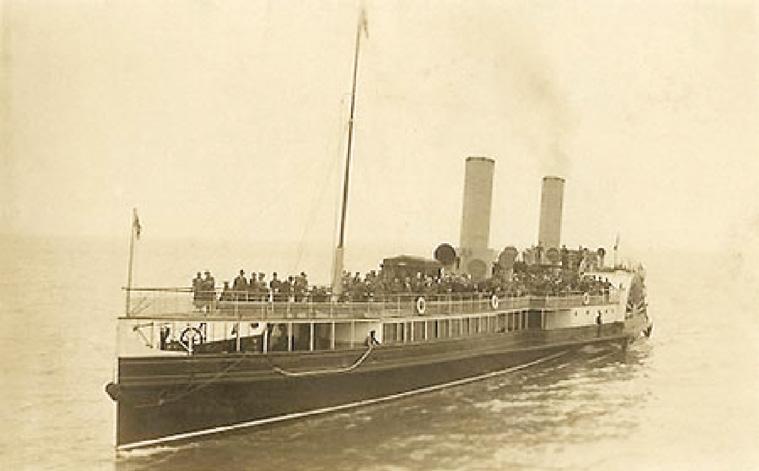
12 minute read
Childhood in England
Chapter One
Childhood in England
George Alexander was born at Clapham Maternity Hospital in Jeffreys Road, Clapham in south London on 9 September 1910.1 His mother was a maid in a large house near Regent’s Park and he never knew his father. As George said, ‘I doubt if in the rest of my life I was ever less welcome.’ For the first two years of his life he lived in the basement of a house near where his mother worked.
When he was two years old George was put on a train – ‘in the luggage van care of the guards’ – and sent to Cove, a small village near Farnborough and Aldershot in Hampshire, about 50 kilometres south-west of London.2 Here he lived in Minley Road with his mother’s parents and unmarried sisters. His grandfather was a fuel merchant, who carried coal, coke and wood with his horse and cart. George remembered him as ‘a thick-set, kindly man’, who was ‘downtrodden in his own home’. He was illiterate and trusted his customers to count out the change from their purchases, though later George would go with him during school holidays and deal with the change.
1. Clapham Maternity Hospital was founded in 1889 by Dr Annie McCall, one of the first women doctors in England. The hospital was staffed by women and was noted for its high standards of hygiene and nursing care.
2. The manor house of Cove was mentioned in the Domesday Book in 1087 and the village later became the centre of a major pottery industry. At the end of the eighteenth century there were over a dozen kilns in operation and the distinctive pottery, known as ‘border ware’ was exported across Europe. However, the industry faded in the 19th century and there was little trace of it by the time George Alexander lived there, except for the many ponds where water had filled the clay pits.

The family lived in a two-storey house with bay windows, a long garden and stables at the back for the horses. There was no indoor plumbing, and they relied on a well in the yard. On bath day a tub was taken from the shed, placed in the middle of the kitchen floor, filled with hot water and then the family took it in turns to wash. Across the road was a field, usually sown with grain crops and George recalled watching from the house as ‘the horsedrawn reaper circled the diminishing standing crops with the favoured locals standing, guns cocked, to shoot the startled hares as they scampered from their diminishing shelter.’ From his bedroom window, George could see aeroplanes from the nearby Farnborough airfield, the site of the first powered flight in Britain in 1908. He also recalled watching the Aldershot military tattoo with the ‘mock battles, cavalry charges, much firing of cannons and rifles’. During the First World War the Farnborough aircraft factory and the army town of Aldershot were bustling with activity and George recalled some of this – a Scottish piper in full regalia marching along Minley Road, and marching soldiers accompanied by ‘dreadful, fearsome tanks’. He also remembered that his aunts worked at the aircraft factory painting the rondos on new aeroplanes.
At the age of five, George began school at the Cove County Council School. He enjoyed his school days and did well at his studies. He recalled that by his last year, ‘I had got somewhat ahead of my peers in the curriculum’ and spent most of his time ‘helping the headmaster with his wireless experiments in the carpentry workshop’. He made his own Morse key and buzzer and then a crystal set ‘all of which except the crystal and cat's whiskers had to be hand made’. With this ‘we got to hear voices … to the utter astonishment of the family.’
His grandparents were devout Anglicans, attending church several times every Sunday, and George sang in the church choir. He was also in the Cubs and then the Boy Scouts, where he was a patrol leader of Peewit Patrol and enjoyed studying for badges and learning about ‘Morse code, knots, stars, compass points, camp making and lots of other useful things.’
Although the area around Cove is now heavily built-up, in the first decades of the twentieth century it was largely rural and George had happy memories of ‘an idyllic lifestyle’, playing in the woods, walking through the fields and picking a carrot or turnip to chew on, helping with the haymaking, and, in winter, playing on frozen ponds and making icy slides. For entertainment at home he had a Meccano set: ‘It was in a solid wooden case and had lots of pulleys, cogs, rods, rails, nuts and bolts, with which I had made cranes, trucks and all sorts of wonderful things’.
He left school at the age of 13 early in 1924. Although his headmaster suggested that he go to college, this was financially impossible and George himself was feeling that ‘so much had already been done for me’ and he was ‘desperate to be self supporting’. His ambition was to be a motor mechanic but his family could not afford the costs of the apprenticeship, so he found himself a job in a bicycle shop for one shilling and sixpence a week.
After only a few weeks working in the bicycle shop, he was surprised when an uncle came to take him back to London, saying there was a good job waiting for him there. In London George found ‘Everything was so bewildering, coming from a quiet hamlet … no traffic but plenty of quiet, to this hubbub of buses with stairs at the back, taxis, cars, horses and carts, all in great confusion.’ He lived with his aunt and uncle in a terrace house at Norwood near Crystal Palace and spent all his spare time walking or bussing around London – ‘there was so much to see and wonder at, marvel at’. Less marvelous were the ‘dreadful pea soup fogs’ so thick that the only way to get about was by feeling the railings along the footpath.
The job waiting for George in London was at a seed merchant’s, where he worked opening imported parcels of seeds and repackaging them for retail sale. One of his recollections of this period was that he was the only person entrusted to open the cases of tulip bulbs from Holland, which often had contraband cigars for the firm’s owner. The owner was a ‘typical Mr Pickwick, huge rotund body with a substantial gold chain drooping from the right hand vest pocket concealing a massive gold watch.’
George’s uncle worked for the Royal Sovereign Steamship Co., which ran pleasure steamers between London and resort towns such as Margate, Yarmouth and Lowestoft, and, after working at the seed merchant’s over the winter of 1924-25, George began work as a deck boy for the summer season of 1925.
The Royal Sovereign Steamship Co. and its associated company, the East Anglian Steamship Co., owned a fleet of paddle steamers including the Royal Sovereign and several vessels of the former Belle Line – London Belle, Clacton Belle, Southend Belle and Yarmouth Belle. The flagship of the fleet, the Royal Sovereign, built in 1893, was 277 feet, 891 tons gross, and licensed to carry 1200 passengers. It had collapsible funnels and masts so that it could pass under Tower Bridge without having to raise the spans. The ‘Belles’ were all smaller, the largest of them, London Belle, being 249 feet and 738 tons, and they could carry about 500 passengers. In the 1920s competition between the steamer companies was fierce and the financial position of the Royal Sovereign company was precarious, eventually going into receivership in 1928 and being wound up in 1932.
In his first summer working on the paddle steamers, George was mainly involved in catering work – washing and drying dishes, carrying plates and walking the decks with a tray of lollies. He recalled wearing a blue and white striped jacket and yelling, ‘Chocolates, lollies, bon bons, ice-cream!’ sometimes extolling the virtues of particular favourites such as Pascall’s Fruit Bon Bons. He worked on the London Belle on the southern run to Ramsgate and Margate in Kent and the Royal Sovereign on the east coast run to Lowestoft and Yarmouth.
Although George had clear memories of the paddle steamers, he recalled little of his domestic situation at the time and has no memory of what he was paid. He recalled being asked to pay one shilling to join the union and replying, ‘I’d like to ask my mother first’. This comment was met with much laughter and the retort that he would join the union or leave the boats.
When the ships were laid up for the winter, George and his uncle were employed to scrape and paint the bilges of one of the vessels. ‘It was a job few would have wanted … kneeling, squatting and forever crawling in the cramped, wet confines of the bilges was a cold, miserable experience.’
George worked on the paddle steamers again in the summer of 1926, this season sailing to the East Anglian ports of Great Yarmouth, Felixstowe and Lowestoft, normally staying overnight at Yarmouth. During the summer he was promoted to run the stall on board, being responsible for maintaining stock levels, recording takings and ensuring stock sold and takings balanced.
The Royal Sovereign paddle steamer transported passengers along the Thames. George worked as a deck boy on this and other vessels in the summer of 1925.

He also began to notice girls and to think about his future. He recalled that on one trip to Yarmouth:
I was able to separate a girl from her guardians and we took a boat trip a short distance up the River Yare. Naturally it tied up at a pub and, now a man of the world, I escorted my young lady to the lounge. I felt a trifle conspicuous as we were the only ones there and I suspect they had just opened. Undaunted, I inquired of her preferences and she wisely left the choice to me. I was, after all, a part-time waiter aboard ship. I approached the bar under the somewhat quizzical gaze of the barman and ordered two ports. I returned to the table where I approached my seated companion from the rear and slightly to the right with rehearsed skill, bending close and placing the drink within comfortable reach. After that, it’s disappointing that I can’t remember what happened the rest of the day.
Of greater concern was his future career. Working on the boats was a seasonal proposition and, as he saw from his uncle, the company offered no financial security. And his personal situation had changed. He no longer went home and had begun sleeping on board the ship – he would go ashore with the others, but then sneak back on board when the coast was clear. As the ships were moored for the night out in midstream, he would have to get a ride from the water police (who never questioned what he was doing going aboard a boat late in the evening).
Very occasionally, George visited his mother, who was still working near Regent’s Park, where the staff all thought she was his aunt. Here he would enjoy a luxurious bath in ‘a huge bath [with] highly polished taps, and then the scented soap and soda based bath salts which made one all slippery.’ But afterwards he would take the bus back to the ‘slum-like dockland’ at Deptford where the boat was moored and wait for a police launch to pass, ‘then, fingers in mouth, hoping that my echoing whistle was heard and that … they would spin round and come in for me.’ Sometimes he had to wait in the dark for hours and then ‘it was a pretty dismal exercise boarding the darkened vessel. There were only the mooring lights, no other lights down below and one was never sure that someone else was not on board.’
There were occasions – possibly during industrial unrest (the British General Strike took place in May 1926) – that George spent several days on board. He recalled one hot day deciding to go for a swim, but he was swept downstream by the tide and was lucky to clamber aboard an anchored barge. He was eventually rescued by police who ‘couldn’t believe what they were seeing: a half-naked kid waving to them from a barge moored almost in the middle of the river off Deptford’.
Over the summer George had many talks about his future with his immediate boss, Pip, the second steward, who was having a spell from the merchant marine. George knew there was no long-term future on the pleasure steamers; he was worried that he would be a burden on his mother and he wanted to be truly independent. Pip talked a lot about Australia, telling George that ‘there were animals there like nowhere else in the world and … people called out “Cooee”, the call sounding for miles.’ Inspired by this, George found his way to Australia House ‘on its sharp corner with window space on both sides’. He studied the windows at length, with its pictures of glorious countryside and particularly its maps, which showed that Australia ‘was so far away that I’d have little chance of coming back’. Eventually he walked in and asked, ‘I want to find out how to get to Australia.’








